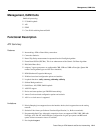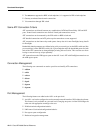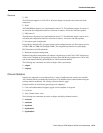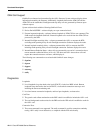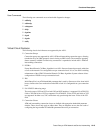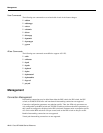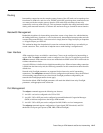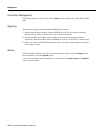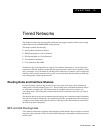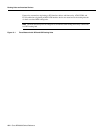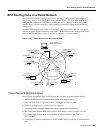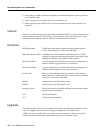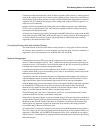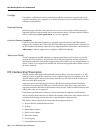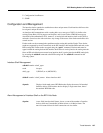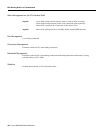
CHAPTER
Tiered Networks 13-1
13
Tiered Networks
This chapter describes the tiered network architecture that supports interface shelves (non-routing
nodes) connected to an IPX/IGX/BPX routing network.
The chapter contains the following:
• Routing Hubs and Interface Shelves
• BPX Routing Hubs in a Tiered Network
• IGX Routing Hubs in a Tiered Network
• User Interface Commands
• Cisco StrataView Plus NMS
With Release 8.5, tiered networks now support voice and data connections as well as frame relay
connections. With this addition, a tiered network can now provide a multi-service capability (frame
relay, circuit data, voice, and ATM). By allowing CPE connections to connect to a non-routing node
(interface shelf), a tiered network is able to grow in size beyond that which would be possible with
only routing nodes comprising the network.
Routing Hubs and Interface Shelves
In a tiered network, interface shelves at the access layer (edge) of the network are connected to
routing nodes via feeder trunks (Figure 13-1). Those routing nodes with attached interface shelves
are referred to as routing hubs. The interface shelves, sometimes referred to as feeders, are
non-routing nodes. The routing hubs route the interface shelf connections across the core layer of
the network.
The interface shelves do not need to maintain network topology nor connection routing information.
This task is left to their routing hubs. This architecture provides an expanded network consisting of
a number of non-routing nodes (interface shelves) at the edge of the network that are connected to
the network by their routing hubs.
BPX and IGX Routing Hubs
Voice and data connections originating and terminating on IGX interface shelves (feeders) are routed
across the routing network via their associated IGX routing hubs. Intermediate routing nodes must
be IGX nodes.



